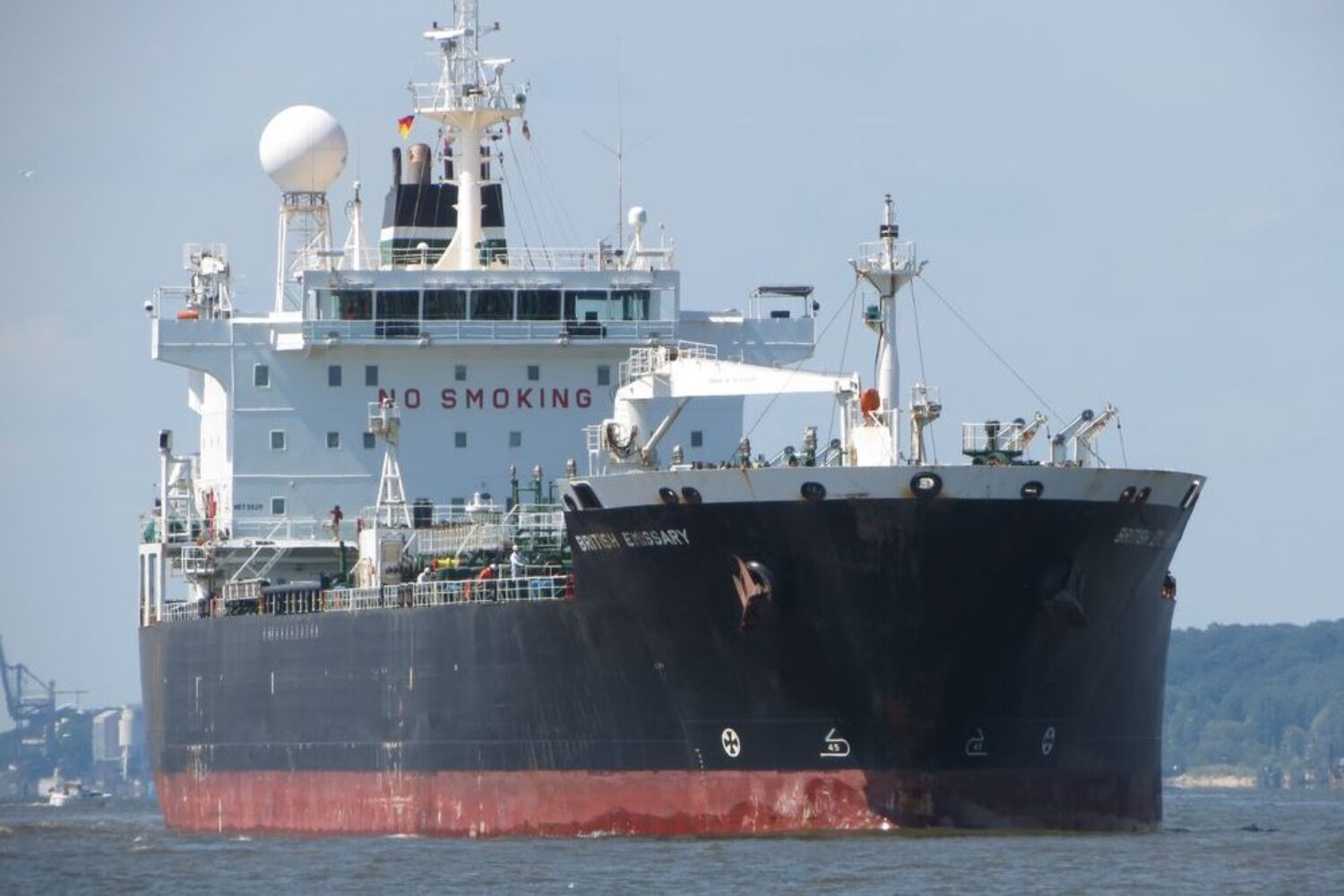The war in Ukraine has disrupted trade flows for both crude oil and refined products, freight rates have skyrocketed and there has been a sharp increase in transactions for older used ships.
February 24, 2024, marked the second anniversary of Russia’s invasion of Ukraine. The war has had a profound impact on the oil and tanker markets. US tanker broker Poten takes the second anniversary of the start of the war as an opportunity to take stock of some of the most important developments. Poten first wrote about the situation in Ukraine on January 21, 2022, one month before the invasion. In the statement entitled “Russian Roulette”, the analysts emphasized the importance of Russian crude oil and products for the European markets. “The sanctions will disrupt trade flows and lead to significant dislocations and inefficiencies that would normally benefit the tanker market,” they said – and that is exactly how it played out. [ds_preview]
Ultimately, Europe stopped importing crude oil and refined products from Russia, completely disrupting trade flows, particularly in the Atlantic Basin. Europe retained more of its North Sea production and increased crude oil imports from across the Atlantic, particularly from the United States.
Trade flows shift
In the initial phase of the sanctions, many tanker owners continued to transport Russian oil. Most Western countries and companies began sanctioning Russia, and trade flows shifted from Europe and North America towards Turkey, India and China. As Moscow’s export infrastructure in the Baltic Sea, the Black Sea and the Russian Far East can only accommodate tankers up to Aframax/Suezmax size, earnings for these crude oil tanker segments increased the most. On the product side, MR ships benefited in particular.
In December 2022, the EU completely stopped importing crude oil from Russia, followed by an import ban on products in February 2023. At the same time as these bans, the G7 countries (EU, US, UK, Canada and Japan) introduced a price cap system that only allows Western tankers and service providers (e.g. insurance companies) to participate in the transportation of Russian oil if the product is sold below a certain price. The price cap is 60 $/barrel for crude oil. For clean products, it is $100 per barrel for products that trade at a premium to crude oil, such as diesel, and $45 per barrel for products that trade at a discount to crude oil, such as heating oil.
Russians export oil with a shadow fleet
Due to the G7 sanctions and the price cap, buyers of Russian oil and oil products could no longer rely on the large international tanker fleet, many of which are Western-insured and/or have Western ownership shares. This led to a rapid expansion of the so-called “dark fleet” or “shadow fleet”, a group of tankers involved in clandestine activities to transport sanctioned oil from Iran, Venezuela and Russia.
These tankers are often old, poorly maintained, operated by inexperienced crews and therefore considered unsafe. They also have opaque ownership structures and opaque insurers. These vessels often use tactics to conceal their location, the origin of the crude oil they carry and their ownership. The exact size of the dark fleet cannot be determined, but it is widely estimated to have at least doubled and possibly tripled in size since the introduction of sanctions against Russia.
Shadow fleet is causing a stir on the second-hand market
The growth of the dark fleet has been fueled by an active market for secondhand vessels, particularly in 2022. An analysis of S&P data by Poten found that transactions for Aframax vessels and Suezmax vessels increased by 50% and 25%, respectively, from 2021 to 2022. Older vessels were the main target: no less than 75% of transactions were for vessels older than 15 years. The new owner paid top prices for these ageing tankers; prices for 15-year-old Aframax and Suezmax vessels have more than doubled since the invasion of Ukraine.
Despite the sanctions, Russian exports of crude oil and refined products have remained relatively stable, even if the customer base is now very different. The growth of the dark fleet has largely protected the Kremlin from the worst effects of the G7 price cap. The sanctions against Russia have certainly boosted the Aframax and Suezmax tankers (as well as the MR tankers). “We do not expect this situation to change as long as the conflict continues and sanctions are maintained,” says Poten.













